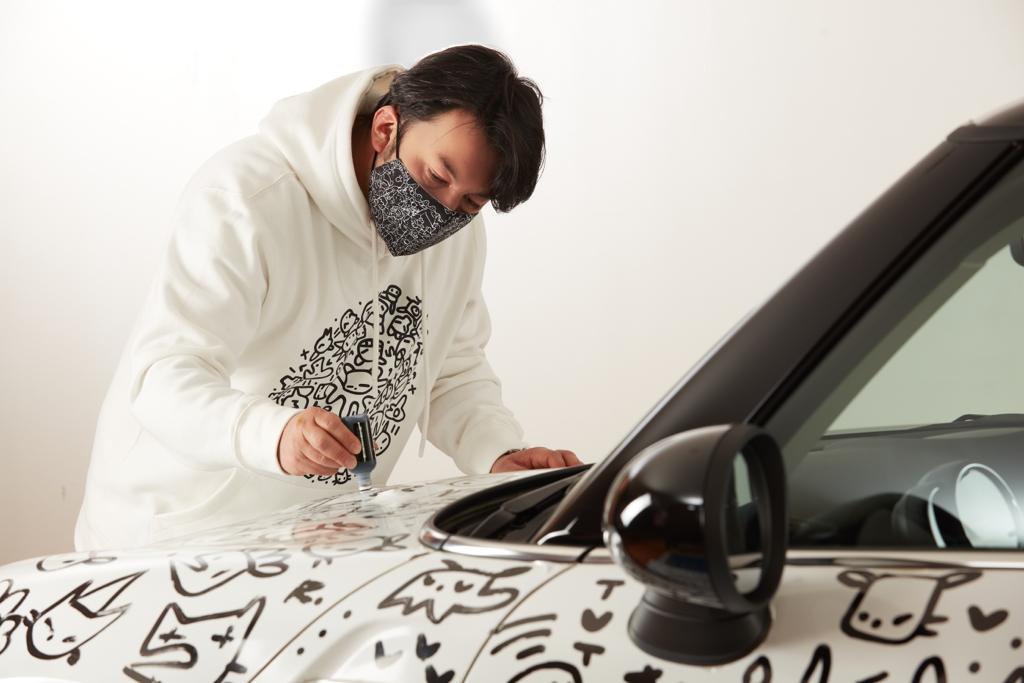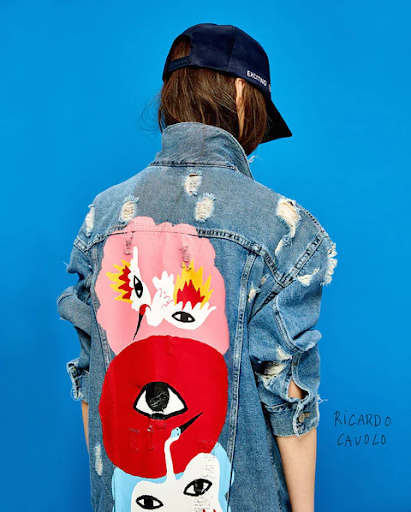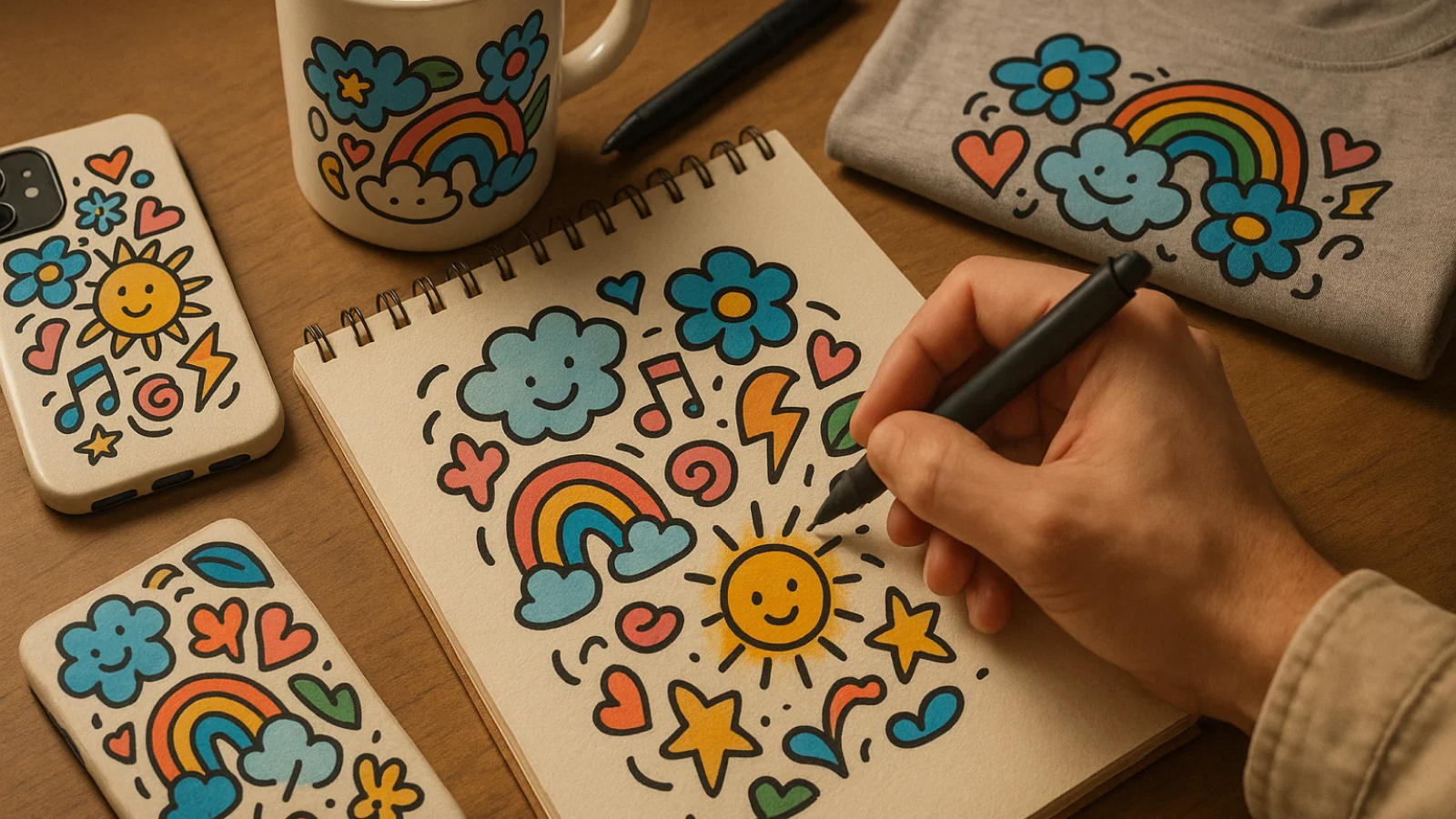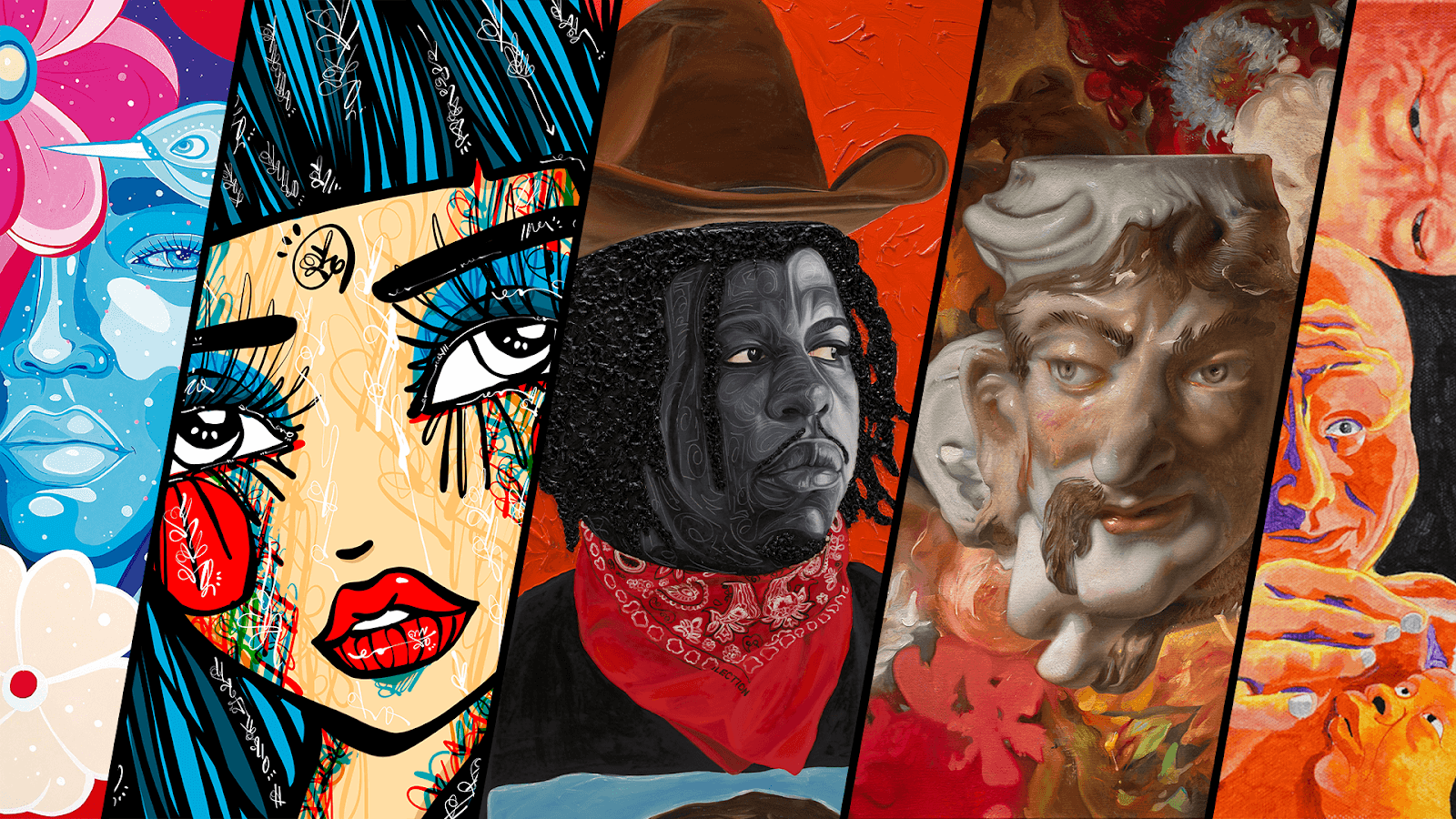Insights
Unlocking Passive Income Through Art Licensing
July 24, 2025

Unlocking Passive Income Through Art Licensing
In today’s evolving creative economy, one of the most powerful and underutilized income streams for visual artists is art licensing. Beyond selling originals, hustling commissions or creating prints, licensing allows artists to generate recurring revenue by giving brands the rights to use their art on products, without giving up ownership.
While the licensing landscape can seem complex at first, it holds massive potential for artists looking to scale their income passively. This article explores real-world case studies of artists who’ve made this transition successfully, and shows how Seminal Artist Group is making that path more accessible than ever.

Why Art Licensing Should Be on Every Artist’s Radar
Art licensing isn’t “selling out”—it’s smart business. It offers a rare combination: it’s scalable, passive, and leverages work you’ve already created. When a brand licenses your art, you receive royalties or flat fees in exchange for usage, whether on textiles, packaging, home décor, apparel, or more.
Licensing benefits include:
- Passive income: One artwork can generate recurring royalties over time.
- Scalability: The same art can be licensed to multiple industries.
- Global exposure: Licensed work appears in retail, online, and international markets.
- Creative freedom: Licensing allows artists to keep creating while previous work keeps earning.
But navigating contracts, outreach, and negotiations can be daunting. That’s where Seminal steps in.
Andrew Moore admiring one of his photographs — Photo by Katya Gimro

How Seminal Artist Group Supports Artists on their Licensing Journey
Seminal Artist Group is a launchpad. Dedicated to elevating visual artists into sustainable creative careers, Seminal specializes in facilitating high-value licensing deals between artists and some of the world’s leading brands.
What Seminal offers:
- Deal Facilitation: Artists under Seminal’s wing have licensed work to brands across fashion, tech, publishing, and consumer goods, on a global scale.
- Discoverability: Seminal amplifies artists visibility by showcasing their work to a curated network of licensees, global brands, manufacturers, and retailers, strategically positioning them to accelerate their licensing journey and unlock high-impact opportunities.
- Education & Advocacy: Understanding licensing terms and copyright is vital—Seminal provides guidance on royalties, contracts, and legal protections.
- Long-Term Representation: Beyond one-off deals, Seminal builds ongoing partnerships that provide recurring income streams and lucrative licensing deals without artists having to lift a finger.
“When I met with Seminal, I was blown away by the caliber of artists they were bringing in. Having worked with some of them overseas and knowing the names they’re pursuing, it’s exciting to be part of it.”

Case Study 1: Ricardo Cavolo – The Global Licensing Powerhouse
“I always create the story first in my mind, and the rest of the process is pretty much improvisation. I let my hands choose the composition and my eyes and heart choose the colors.”
When Ricardo Cavolo entered the world of art licensing, he wasn’t just chasing exposure, he was laying the groundwork for sustainable, long-term income. His bold, symbolic style caught the attention of global brands like Cirque du Soleil, Bally, and especially Zara, who’ve returned to collaborate with him year after year.
What began as a one-off collection with Zara evolved into an ongoing partnership, with his illustrations featured across apparel, accessories, and campaigns. The work Ricardo created once continues to pay dividends, as Zara brings his art back season after season, proof that licensing isn’t just about deals, it’s about relationships.
Key Takeaway: A strong licensing partnership can become a long-term revenue engine. Focus on building real creative relationships, not just chasing logos. The right art licensing partnership can turn a single project into an evergreen income stream—and let your art keep earning long after the ink has dried.

Case Study 2: TOTCAT – From Street Walls to Global Brands
“If brands didn’t exist, things would be different, since many of the important works I’ve done have been with big companies. I see this as the result of having been to university; it’s the same as anyone who studies a career: I project this as a business, and if it allows me to spread my art across many countries, then wonderful.”
Colombian artist TOTCAT (Giovanny Sanchez) is known for his bold, cat-centric street art that fuses graffiti, anime, and pop culture. With the support of Seminal Artist Group, his work has transitioned from urban murals to licensed collaborations with major global brands.
Recently he licensed a limited-edition apparel line with NEXT, where his signature style hit the high street. Prior deals with Puma saw his artwork featured on special-edition sneakers and apparel, blending street art with athletic fashion. He’s also collaborated with Mitsubishi, bringing his visual language into automotive branding.
Licensing has been a turning point in TOTCAT’s career, allowing him to expand his audience, monetize his art across industries, and maintain creative control.
Key Takeaway: Licensing has elevated TOTCAT from local icon to global creative force, proving how street art can thrive in new commercial markets when paired with the right partners.

Case Study 3: Bayley Mifsud (Merindah-Gunya) – Culture Meets Commercial Licensing
“Seminal are challenging the current art world by allowing artists to be given the rights that they deserve. Their moral rights, their legal rights through licensing of artworks and giving the artists what they deserve.”
Andrew Moore admiring one of his photographs — Photo by Katya Gimro
Bayley Mifsud, a Peek Whurrong woman of the Maar nation, blends traditional Aboriginal symbolism with contemporary design. After reigniting her art practice during COVID-19, she partnered with Seminal Artist Group to scale her licensing impact.
Her work has been licensed by brands such as Cadbury and Casetify, appearing on eco-conscious products that carry strong cultural narratives. Seminal facilitated the Rippl Water collaboration, ensuring fair royalties and authentic representation.you
Key Takeaway: Cultural storytelling can thrive in commercial licensing, when paired with the right support, it becomes both impactful and income-generating.
How to Start Licensing Your Art (with or without Seminal)
If you’re ready to explore licensing, whether solo or with Seminal’s support, start here:
- Build a Focused Portfolio
Group your work into 10-20 piece collections that feel unified and market-ready. - Research the Market
Identify brands that align with your aesthetic. What products could your art live on? - Understand the Terms
Digital art licensing basics and copyright protections are crucial before signing anything. - Reach Out or Get Representation
Direct pitching works, but platforms like Seminal offer built-in brand access and licensee visibility all in one place. - Be Consistent
Licensing is about momentum. The more quality work you produce, the more opportunities arise.
Andrew Moore admiring one of his photographs — Photo by Katya Gimro

Licensing Is the Future of Art Income
These case studies show one truth: art licensing is not just viable—it’s transformational. For many artists, it represents the perfect balance of creative integrity and financial freedom.
And with partners like Seminal Artist Group actively creating pipelines between artists and brands, the barrier to entry is lower than ever. Whether you’re emerging or established, there has never been a better time to build passive income from your art.
Want help getting started?
Learn how to protect your portfolio—and begin your journey toward passive, scalable income.
👉 Visit Seminal or reach out for a portfolio consultation today.


